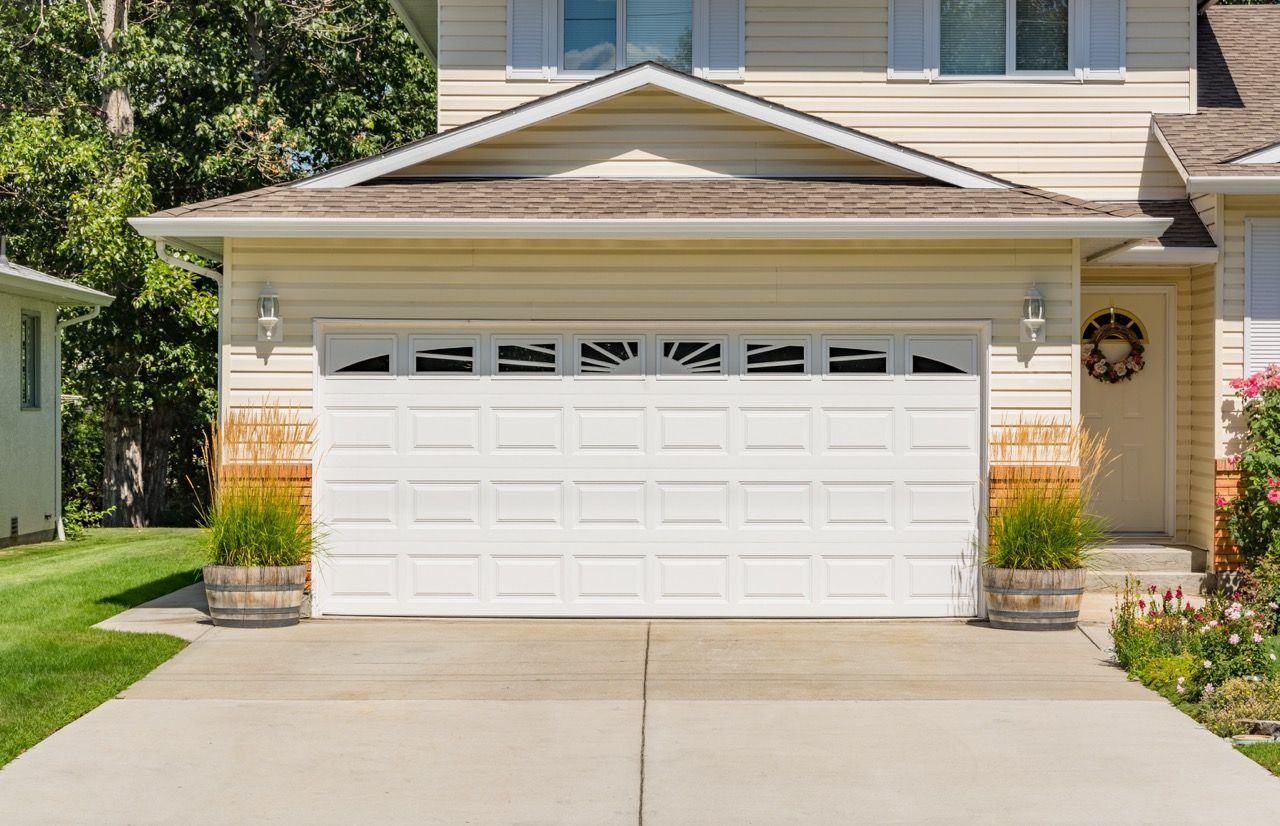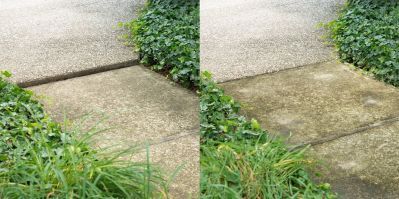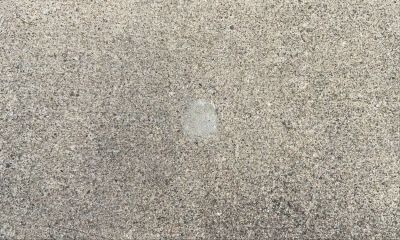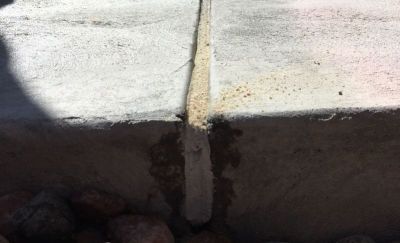
Learn what your concrete leveling repair will look like, how long it will last, best maintenance practices, and more.
Reviving and restoring your worn-out concrete with concrete leveling is an excellent way to bring back its functionality and good looks, but if you've never experienced a concrete leveling repair before, you’re likely unsure of what to expect.
Luckily, concrete leveling is a hassle-free repair method that leaves concrete looking great without the need for messy demolition, heavy machinery on your property, or the high costs that come with replacement.
After more than 30 years as concrete leveling experts here at A-1, we know what concrete leveling looks like before, during, and after the process like the back of our hands.
However, we know it may be a new experience for you, so we’ve created this resource to help you learn as much as possible about what to expect when it comes to concrete leveling.
What Does a Concrete Leveling Repair Look Like?
Lifted Concrete

During the concrete leveling process, the settled concrete is lifted back to as close to its original position as possible, making it even with the surrounding concrete.
It's important to note that because we are lifting the concrete from the bottom up, the concrete leveling won’t change its surface texture or appearance, apart from the patched drill holes. Cleaning and sealing the concrete is an additional service that can help restore the original color of the concrete.
Exposed Material
Some of the material that is injected underneath the slab may be noticeable along the edges of the concrete after it has been lifted. This is normal if your soil levels or landscaping have settled along with the concrete.
If this is the case for your repair, you should add sod, soil, or landscaping to the areas with exposed material to cover and protect it from erosion.
Drill Holes

During the concrete leveling repair, we drill 1-inch holes for stone slurry grout leveling and ⅝-inch holes for foam concrete leveling into the affected slabs.
After the lifting is done, we patch the drill holes with a non-shrink grout. For exposed aggregate concrete, we also use a blend of sand and aggregate on top to match the existing concrete as closely as possible. For broom-finished concrete, we do the same, but blend the holes in with only sand.
Although the drill holes may not be completely invisible, we try our best to blend them in with the surrounding concrete. Over time, the drill holes will weather along with your concrete.
Caulking

To prevent water and moisture from infiltrating the repaired areas and causing resettling, we recommend caulking cracks and expansion joints that are open to the bottom of the concrete slab. We generally advise against caulking hairline cracks as it can make them more noticeable.
To caulk concrete, we grind the crack or joint in a V shape, which lets us set the stone-colored caulk down inside of the break so it doesn’t stick out of the crack. We add a mix of sand and aggregate to blend in the caulk when working on aggregate concrete, and only sand to blend the caulk in with broom-finished concrete.
By blending the stone-colored caulk in with sand and/or aggregate, it looks more cohesive and natural, rather than a stark difference between the caulk and concrete.
How Long Does Concrete Leveling Last?
When the soil beneath the concrete has finished naturally compacting or settling, and there is nothing eroding away the new base injected under the slab, a concrete leveling repair can last for the lifespan of the concrete itself.
In fact, we’ve seen concrete leveling repairs that we performed when we started 30+ years ago that are still going strong today. With that being said, proper maintenance plays a crucial role in ensuring the longevity of your concrete leveling repair.
Related Resource: How Long Does Concrete Leveling Last?
How to Maintain Your Concrete Leveling Repair
To maximize the lifespan of your concrete leveling repair, it's essential to address potential sources of erosion. By taking proactive steps, you can help protect your leveled concrete from resettling.
Related Resource: How To Maintain Your Concrete Leveling Repair
Water Erosion
Redirecting drainage or downspouts away from the concrete, caulking gaps and cracks to prevent water infiltration, cleaning and repairing gutters, and implementing proper drainage to reduce runoff are good ways to combat water erosion.
Pests
Eliminating pests such as ants or chipmunks helps prevent them from perforating and undermining the base supporting your newly leveled concrete with their tunnels and burrows.
Soil Levels
Applying loose soil around the base of your concrete leveling repair can help serve as a protective barrier against erosion.
Now What?
At the end of the day, concrete leveling is there to help you meet your specific needs and enhance the overall appearance of your existing concrete. If you have recently undergone a concrete leveling repair, following the maintenance practices discussed in this article will help ensure it continues to look great and meet those needs for as long as possible.
Here at A-1 Concrete Leveling, our goal is to give you all the information you need to make informed decisions on your concrete repair and maintenance needs. For that reason, we have lots of additional resources like this one in our online library, Concrete Academy. Check out these related topics:
- How to Maintain Concrete
- The Benefits of Maintaining and Repairing Your Home's Concrete
- How Long Does Concrete Leveling Actually Last?
If you’re interested in concrete leveling and haven’t already requested a free onsite concrete inspection and cost estimate, click the link below!
Click Here to Find Your Nearest Location and Receive a FREE Estimate
Sarah Etler joined A-1 Concrete Leveling after receiving her Bachelor of Arts degree in English from Northern Kentucky University. As A-1's Content Marketing Manager, she works closely with industry experts to produce content that will best answer questions related to concrete repair and maintenance practices. Sarah loves living a life full of discovery and is excited every day to see what new things she can learn and share with those around her.